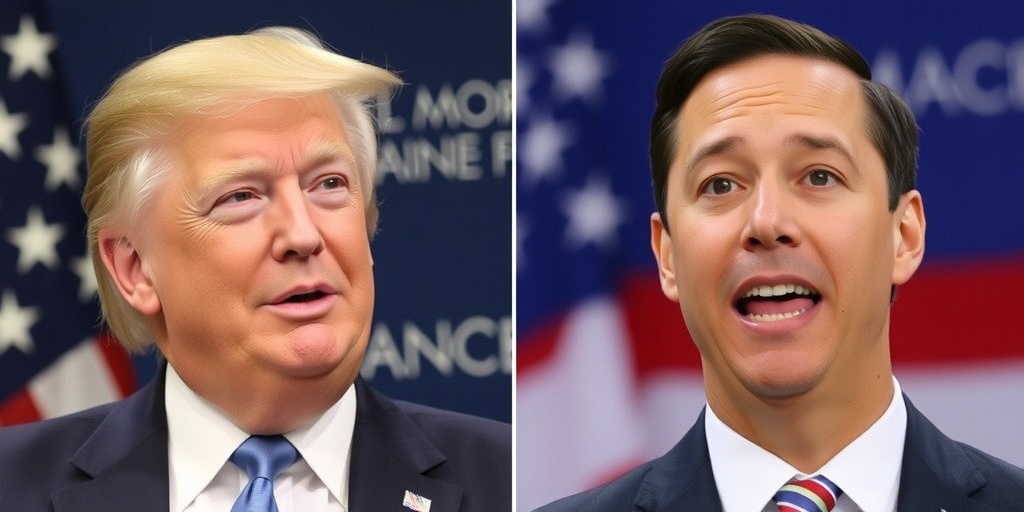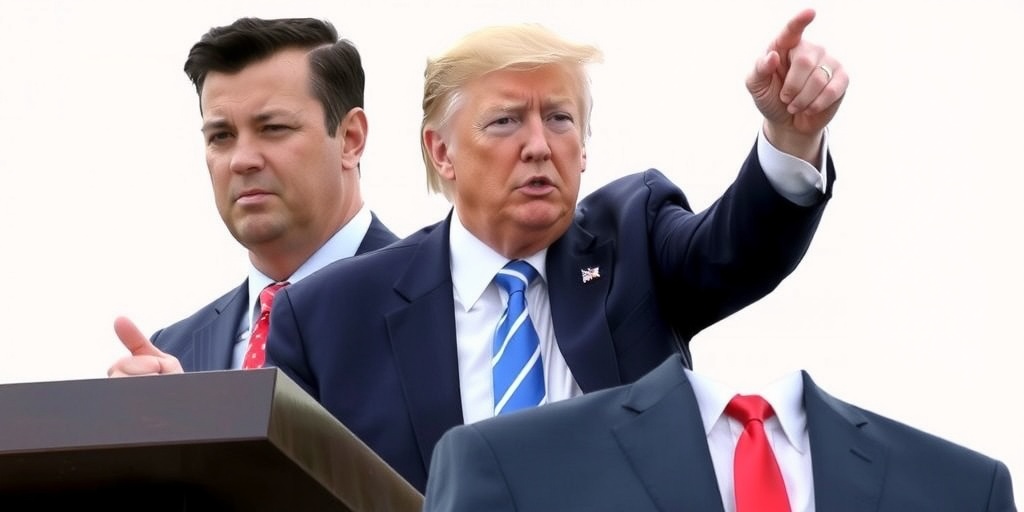Now Reading: Trump and Maine Governor Mills Clash Over Trans Athletes Issue
-
01
Trump and Maine Governor Mills Clash Over Trans Athletes Issue
Trump and Maine Governor Mills Clash Over Trans Athletes Issue

Defiance in the White House: Maine Governor Challenges Trump on Transgender Athlete Ban
In a rare and poignant moment of defiance, Maine Governor Janet Mills directly challenged President Trump during a White House meeting with a group of bipartisan governors. The exchange occurred on a Friday afternoon, marking a notable incident in an increasingly polarized political landscape where opposition to the president has often been muted.
The meeting had been underway for about an hour when Trump recalled that Maine’s leadership had been resistant to an executive order he had recently signed, which aimed to ban transgender athletes from competing in women’s sports. This order has sparked significant debate across the nation, reflecting broader cultural and political divides.
“Is Maine here?” Trump queried aloud, trying to locate the state’s governor in the room. When Ms. Mills promptly responded, “Yeah, I’m here,” the conversation took a confrontational turn. Trump pressed, “Are you not going to comply with that?” His tone suggested that compliance with his order was not just expected but an obligation.
Mills stood firm in her response, asserting, “I’m complying with the state and federal laws,” emphasizing her commitment to uphold the legal framework rather than simply following presidential dictates. This assertion of authority sparked a tense back-and-forth that underscored the ongoing conflict between state and federal powers, particularly regarding issues of gender and sports.
Trump, unyielding, declared, “We are the federal law,” and threatened to withhold federal funding from Maine if Mills did not comply with his executive order. He reinforced his stance by referencing recent public opinion findings, which indicated that a majority of Americans sided with his view against allowing transgender female athletes—those who were assigned male at birth—to compete in women’s sports. A recent poll conducted by The New York Times and Ipsos revealed that only 18 percent of Americans supported the inclusion of transgender women in women’s sports.
Mills, undeterred by the president’s threats, countered with a resolute “See you in court.” Trump’s curt reply, “Good,” indicated his readiness for a legal battle, and he added, “I look forward to that. That should be a real easy one.” The exchange concluded with Trump delivering a parting shot: “Enjoy your life after governor, because I don’t think you’ll be in elected politics.” This remark hinted at Trump’s belief in the long-term repercussions of Mills’s defiance.
This incident highlighted a broader challenge for Democrats grappling with how to effectively counter Trump’s aggressive governance style. Since his inauguration for a second term, Trump has expressed a desire for increased power, even going so far as to liken himself to a king. The infamously divisive political environment has disoriented many Democratic leaders, leaving them scrambling for effective strategies to mount opposition against Trump’s policies.
Following Mills’s standoff with Trump, tensions escalated between Maine’s administration and the federal government. Not long after the confrontation, the U.S. Department of Education sent a letter to the state’s education commissioner, Pender Makin. This correspondence announced the initiation of a “directed investigation” into Maine’s Education Department, specifically calling attention to a particular school. Reports suggested that this school had allowed at least one male student to compete in girls’ categories, an action that directly contradicted Trump’s executive order.
The ramifications of this exchange were felt beyond the confines of the meeting room, as other governors took note of the tension. Hawaii’s Democratic Governor Josh Green, present during the confrontation, remarked that several of his fellow governors expressed concern about the nature of the dialogue. He described it as “a little bit harsh” and suggested that the conflict, although not overtly vocal, was unnecessary. Green praised Mills for her firmness during the heated moment, highlighting the significance of standing up to federal authority.
In sum, this incident at the White House serves as a crucial example of state-level resistance to federal directives. It encapsulates the ongoing struggles over issues like transgender rights, the balance of power between state and federal governance, and the complexities facing the Democratic Party as it navigates opposition to Trump’s administration. As the political climate continues to evolve, the bold stance taken by Governor Mills may inspire further acts of defiance among leaders seeking to uphold their own local laws and values against federal pressures.
Stay Informed With the Latest & Most Important News
Previous Post
Next Post
-
 01New technology breakthrough has everyone talking right now
01New technology breakthrough has everyone talking right now -
 02Unbelievable life hack everyone needs to try today
02Unbelievable life hack everyone needs to try today -
 03Fascinating discovery found buried deep beneath the ocean
03Fascinating discovery found buried deep beneath the ocean -
 04Man invents genius device that solves everyday problems
04Man invents genius device that solves everyday problems -
 05Shocking discovery that changes what we know forever
05Shocking discovery that changes what we know forever -
 06Internet goes wild over celebrity’s unexpected fashion choice
06Internet goes wild over celebrity’s unexpected fashion choice -
 07Rare animal sighting stuns scientists and wildlife lovers
07Rare animal sighting stuns scientists and wildlife lovers





















